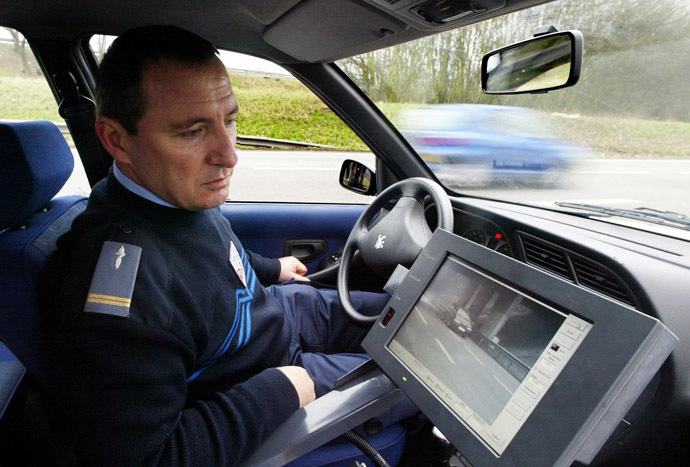EU Police Plan To Stop Cars Using Remote Control
Leaked documents have revealed an elaborate plan giving police the ability to remotely disable car engines. This technology comes under ENLET's(European Network of Law Enforcement Technologies') 6-year development project. ENLET is a group working for the European Union police. These documents have been leaked by Statewatch: a civil liberties monitoring watchdog in EU. It is further stated that these measures have been implemented to curb high-speed car chases and to stop commonly used car stopping techniques such as car tyre spiking. The document states-"Cars on the run can be dangerous for citizens. Criminal offenders will take risks to escape after a crime. In most cases the police are unable to chase the criminal due to a lack of efficient means to stop the vehicle safely."
This technology, despite being novel in India; has been in use for quite some time in developed countries. It is used by car rentals, dealerships and loan firms use it to remind client for example, of overdue money by honking horns and flashing lights and then disable the engine completely a few days later. This is all possible due to the fact that in modern cars many processes are controlled by microprocessors and such technology, called vehicle telematics; is becoming more powerful with each day. However, this technology, like others, is not hacker-proof and if hacked may even lead to collapse of major safety-critical systems like brakes. This was shown in 2010 by a study undertaken by researchers at University of California, San Diego and Washington University. But vehicle telematics can prove useful in car theft cases where a stolen car can be slowed down and stopped by a command from a remote server.

(Image Courtesy: AFP Photo/Francois Lo Presti)
Back in EU, not everyone is excited about this new plan of the law enforcers because a few civil rights activists have voiced their concern over the Government possessing such a great authority. The director of Statewatch, Tony Bunyan said,"We all know about the problems surrounding police stop and searches, so why will be these cars stopped in the first place. We also need to know if there is any evidence that this is a widespread problem. Let's have some evidence that this is a problem, and then let's have some guidelines on how this would be used." Commenting in the same vein and voicing his concern regarding road safety David Davis, Conservative Party MP said,""I would be fascinated to know what the state's liability will be if they put these devices in all vehicles and one went off by accident whilst a car was doing 70mph on a motorway with a truck behind it resulting in loss of life."
Nonetheless, it is clear that the technological advances in areas concerning human life and safety should be dealt with extreme caution and their failure rates should be made infinitesimally small before they are actually implemented.
This technology, despite being novel in India; has been in use for quite some time in developed countries. It is used by car rentals, dealerships and loan firms use it to remind client for example, of overdue money by honking horns and flashing lights and then disable the engine completely a few days later. This is all possible due to the fact that in modern cars many processes are controlled by microprocessors and such technology, called vehicle telematics; is becoming more powerful with each day. However, this technology, like others, is not hacker-proof and if hacked may even lead to collapse of major safety-critical systems like brakes. This was shown in 2010 by a study undertaken by researchers at University of California, San Diego and Washington University. But vehicle telematics can prove useful in car theft cases where a stolen car can be slowed down and stopped by a command from a remote server.

(Image Courtesy: AFP Photo/Francois Lo Presti)
Back in EU, not everyone is excited about this new plan of the law enforcers because a few civil rights activists have voiced their concern over the Government possessing such a great authority. The director of Statewatch, Tony Bunyan said,"We all know about the problems surrounding police stop and searches, so why will be these cars stopped in the first place. We also need to know if there is any evidence that this is a widespread problem. Let's have some evidence that this is a problem, and then let's have some guidelines on how this would be used." Commenting in the same vein and voicing his concern regarding road safety David Davis, Conservative Party MP said,""I would be fascinated to know what the state's liability will be if they put these devices in all vehicles and one went off by accident whilst a car was doing 70mph on a motorway with a truck behind it resulting in loss of life."
Nonetheless, it is clear that the technological advances in areas concerning human life and safety should be dealt with extreme caution and their failure rates should be made infinitesimally small before they are actually implemented.
0
